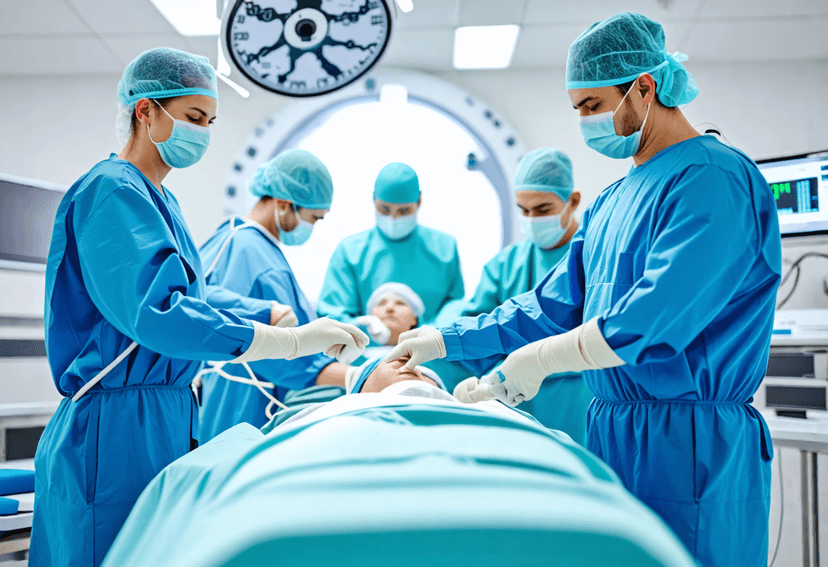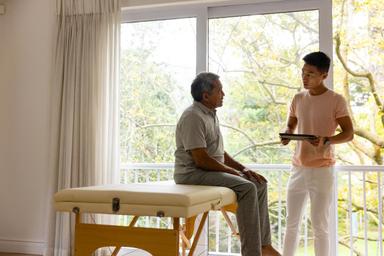
Transplant and Exercise: Getting Back on Track
08 Oct, 2024
 Healthtrip
HealthtripAfter a transplant, it's essential to get back on track with a healthy lifestyle, and exercise plays a vital role in this journey. As you recover from the surgery, you may feel weak, tired, and unsure about what your body can handle. However, with the right guidance and approach, you can regain your strength, boost your energy levels, and improve your overall well-being. In this blog, we'll explore the importance of exercise after a transplant, the benefits it offers, and provide you with a comprehensive guide to getting started.
Why Exercise is Crucial After a Transplant
Exercise is a critical component of the recovery process after a transplant. It helps to improve cardiovascular health, increase strength and endurance, and enhance overall physical function. Regular physical activity can also reduce the risk of complications, such as infections and rejection, and improve mental health outcomes. Moreover, exercise can help you regain your independence, boost your confidence, and improve your quality of life.
Most popular procedures in India
The Benefits of Exercise After a Transplant
Exercise offers numerous benefits for transplant patients, including:
- Improved cardiovascular health: Regular exercise helps to strengthen the heart and lungs, reducing the risk of cardiovascular disease.
- Increased strength and endurance: Exercise helps to build muscle mass and improve overall physical function, making daily activities easier.
- Enhanced mental health: Exercise has been shown to reduce symptoms of anxiety and depression, improving overall mental well-being.
- Better sleep: Regular physical activity can help improve sleep quality and duration.
- Improved immune function: Exercise has been shown to boost the immune system, reducing the risk of infections and rejection.
Wellness Treatments
Give yourself the time to relax
Lowest Prices Guaranteed!

Lowest Prices Guaranteed!
Getting Started with Exercise After a Transplant
Before starting any exercise program, it's essential to consult with your healthcare team to determine the best approach for your individual needs. They can help you develop a personalized exercise plan that takes into account your medical history, fitness level, and any physical limitations. Here are some general tips to get you started:
Start Slow and Gradual
It's essential to start slowly and gradually increase your physical activity levels. This will help your body adapt to the demands of exercise and reduce the risk of injury or exhaustion. Begin with short, low-intensity sessions and gradually increase the duration and intensity over time.
Focus on Functional Exercises
Functional exercises, such as squats, lunges, and step-ups, can help improve your balance, coordination, and overall physical function. These exercises can be modified to suit your fitness level and can be done at home or in a gym.
Incorporate Cardiovascular Exercise
Cardiovascular exercise, such as walking, cycling, or swimming, can help improve your heart health and increase your endurance. Aim for at least 30 minutes of moderate-intensity exercise per session, three to four times a week.
Make it Fun and Engaging
Exercise shouldn't be a chore; it should be enjoyable! Find activities that you enjoy, such as dancing, hiking, or playing sports, and incorporate them into your exercise routine. This will help you stay motivated and committed to your fitness goals.
Overcoming Common Challenges
Exercise after a transplant can come with its challenges, including fatigue, pain, and fear of rejection. Here are some tips to help you overcome these common obstacles:
Managing Fatigue
Fatigue is a common side effect of transplant surgery and medication. To manage fatigue, try to pace yourself, take regular breaks, and prioritize rest and relaxation. It's also essential to listen to your body and not push yourself too hard.
Dealing with Pain
Pain is a common complaint after transplant surgery. To manage pain, try to stay active, use relaxation techniques such as deep breathing and meditation, and consult with your healthcare team about pain management options.
Overcoming Fear and Anxiety
Fear of rejection or complications is a natural concern after a transplant. To overcome these fears, educate yourself about the risks and benefits of exercise, consult with your healthcare team, and focus on the positive benefits of physical activity.
Conclusion
Related Blogs

The Role of Exercise in Kidney Health
Learn how exercise can improve kidney health

Adenoidectomy Surgery: A New Lease on Life
Learn how Adenoidectomy surgery can improve overall quality of life,

Fitness for Men's Vitality
Learn the best fitness tips for men's vitality and wellness

Exercise for Men's Vitality
Learn the best exercises for men's vitality and wellness

Epilepsy and Exercise: Is it Safe?
The benefits and risks of exercise for individuals with epilepsy,

Spine Surgery and Exercise: A Winning Combination
Learn how exercise can aid in spine surgery recovery.










